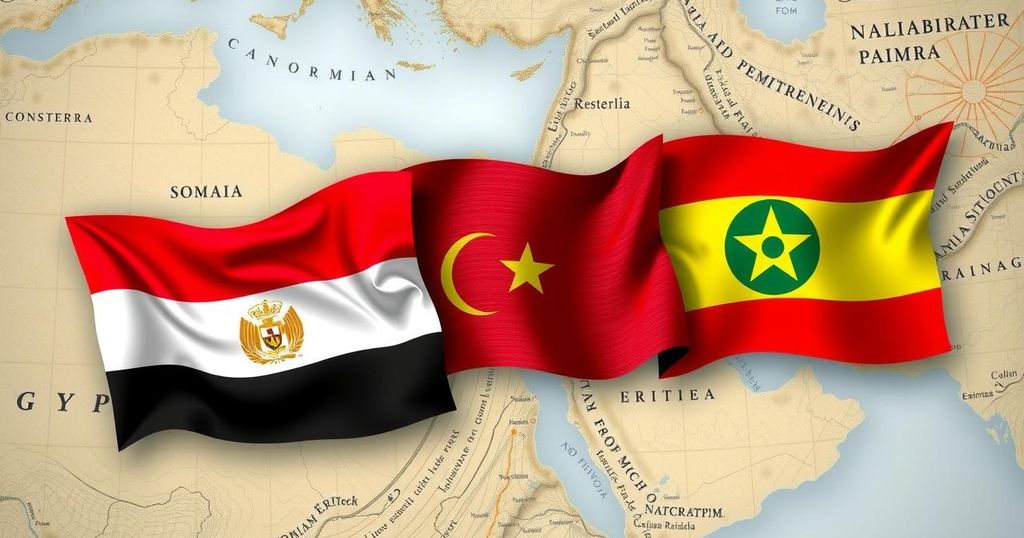Egypt is strengthening alliances with Eritrea and Somalia to counter Ethiopia’s influence following rising tensions over water security issues related to the Grand Ethiopian Renaissance Dam. Leaders from the three countries met to pledge military cooperation and support for Somalia’s counterterrorism efforts, amidst concerns over Ethiopia’s maritime ambitions through Somaliland.
Egypt is reinforcing its strategic relationships with Eritrea and Somalia in response to perceived threats from Ethiopia to its regional interests. In October 2024, leaders from the three nations gathered in Asmara for a summit focused on enhancing military collaboration and fostering regional stability. During this meeting, they pledged to support Somalia’s counterterrorism initiatives, with Egypt agreeing to deploy troops as part of the African Union mission to counterbalance Ethiopia’s growing influence in the Horn of Africa.
This alliance is rooted in Egypt’s ongoing disputes with Ethiopia concerning the Grand Ethiopian Renaissance Dam (GERD), which Cairo regards as a significant threat to its water security. The recent agreement between Ethiopia and Somaliland for maritime access has also exacerbated tensions, nudging Somalia to align more closely with Egypt and Eritrea. Analysts argue that this trilateral gathering represents a strong reaction by Egypt to secure its dominance in the region amidst rising tensions regarding Nile water rights and control over the Red Sea.
Ethiopia’s ambitions to regain maritime access through its arrangement with Somaliland have alarmed Somalia, which perceives it as an infringement on its sovereignty. Consequently, this has propelled Egypt and Eritrea to strengthen their military collaboration with Mogadishu. Egypt’s strategy encompasses not only diplomatic efforts but also military assistance, highlighted by arms shipments to Somalia and the formation of a joint foreign ministers’ committee to coordinate strategic initiatives.
As hostilities persist, this alliance has the potential to redefine the power dynamics in the region, potentially leading to heightened military and diplomatic confrontations. The forthcoming months will be pivotal in determining the influence of this strategic alignment on the ongoing disputes over the Nile and access to the Red Sea.
The geopolitical landscape in the Horn of Africa is characterized by complex relationships and ongoing disputes, particularly surrounding water resources and maritime access. Egypt’s concerns over Ethiopia’s construction of the Grand Ethiopian Renaissance Dam have led to heightened tensions, as these developments are perceived to threaten Egypt’s water security, which relies heavily on the Nile. Moreover, Ethiopia’s recent agreements with Somaliland for maritime access have instigated a recalibration of alliances in the region, prompting nations such as Somalia to reconsider their own strategic partnerships.
In summary, Egypt, Eritrea, and Somalia are taking decisive steps to fortify their alliance against what they view as a growing Ethiopian threat. The recent summit in Asmara underscores their commitment to military cooperation and regional stability amid escalating tensions over water rights and territorial integrity. This partnership may reshape regional dynamics, particularly regarding disputes over the Nile and Red Sea access, highlighting the strategic chessgame in the Horn of Africa.
Original Source: www.garoweonline.com






